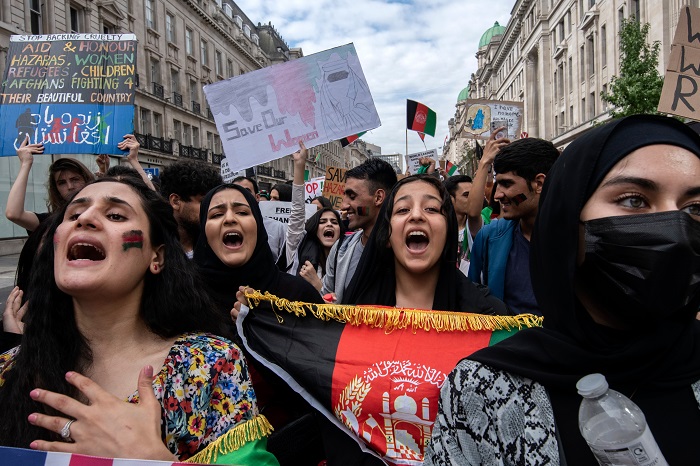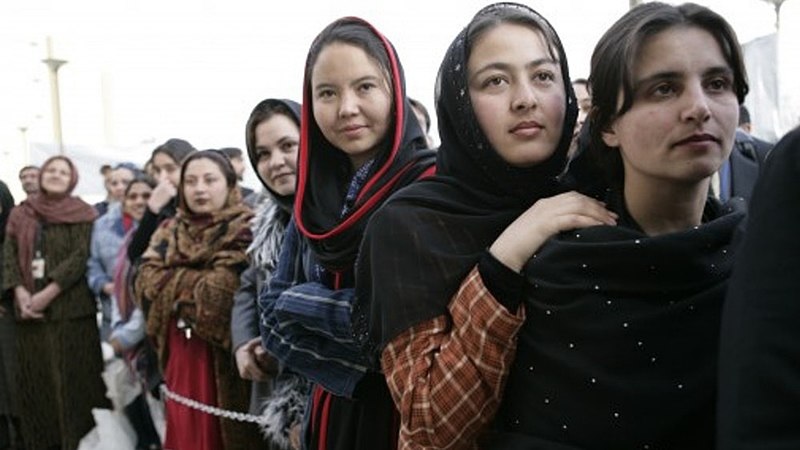world news online news
The Taliban must immediately revoke their policies targeting women and girls in Afghanistan, the UN rights chief insisted Tuesday, condemning their “terrible” consequences. online news
“No country can develop — indeed survive — socially and economically with half its population excluded,” Volker Turk, the United Nations High Commissioner for Human Rights, said in a statement.
“These unfathomable restrictions placed on women and girls will not only increase the suffering of all Afghans but, I fear, pose a risk beyond Afghanistan’s borders.”
He said the policies risked destabilising Afghan society.
“I urge the de facto authorities to ensure the respect and protection of the rights of all women and girls — to be seen, to be heard and to participate in and contribute to all aspects of the social, political and economic life of the country,” said Turk.
On Saturday, Afghanistan’s hardline Islamist rulers banned women from working in non-governmental organisations. The Taliban have already suspended university education for women and secondary schooling for girls.
“This latest decree by the de facto authorities will have terrible consequences for women and for all Afghan people,” Turk said.
“Banning women from working in NGOs will deprive them and their families of their incomes, and of their right to contribute positively to the development of their country and to the well-being of their fellow citizens.”
The move is the latest blow against women’s rights in Afghanistan since the Taliban reclaimed power last year.
“The ban will significantly impair, if not destroy” these NGOs’ capacity to deliver essential services, Turk said, calling it all the more distressing with Afghanistan in the grip of winter, when humanitarian needs are at their highest.
Several foreign aid groups announced on Sunday they were suspending their operations in Afghanistan.
Women have also been pushed out of many government jobs, prevented from travelling without a male relative and ordered to cover up outside of the home, ideally with a burqa, and not allowed into parks.

The international community has made respecting women’s rights a sticking point in negotiations with the Taliban government for its recognition and the restoration of aid.
“Women and girls cannot be denied their inherent rights,” said Turk.
“Attempts by the de facto authorities to relegate them to silence and invisibility will not succeed.”
rjm/vog/imm
© Agence France-Presse. All rights are reserved.
Notes from APS Radio News
The “Costs of War”, a project affiliated with Brown University, has itemized the costs associated with the wars in Iraq and in Afghanistan:
Over 801,000 people have died in the post-9/11 wars due to direct war violence, and several times as many due to the reverberating effects of war
Over 335,000 civilians have been killed as a result of the fighting
37 million — the number of war refugees and displaced persons
The US federal price tag for the post-9/11 wars is over $6.4 trillion
The US government is conducting counterterror activities in 85 countries
world news online news
The wars have been accompanied by violations of human rights and civil liberties, in the US and abroad.
In addition, the website makes mention of this fact: Since the commencement of these wars, there have been 30,177 suicides of veterans of these wars.
According to a number of economists, the expenditure of vast sums of money—trillions of dollars—on these wars has reduced substantially the purchasing power of the dollar.
Observers have called inflation a “hidden tax”.
During the 1990’s the Clinton administration gave tacit if not explicit support to the Taliban government that took over the country during that time after over a decade of US and Soviet interventions in Afghanistan in the 1980’s.
During the late 1970’s then National Security Advisor Zbigniew Brzezinski oversaw surrpetitious intervention, which, in its turn, caused the secular government in Afghanistan to petition the Soviet Union to intervene.
According to the author Jean-Charles Brisard, in the summer of 2001, representatives of the Bush Administration and those of Unocal held a series of meetings with representatives of the Taliban government, for the purpose of obtaining rights of way for the emplacement & construction of a massive pipeline.
When the negotiations came to grief, Bush representatives threatened the Taliban with attacks against the country, Mr. Brisard described in his book, “Forbidden Truth”.
Following the commencement of Soviet and US intervention in Afghanistan in the 1980’s, the country devloved into spheres of influnece dominated by various warlords.
The Pashtuns are the largest ethnic group in Afghanistan; they form a substantial precentage of the population on both sides of Afghanistan’s border with Pakistan.
The Taliban are comprised of members of the Pashtuns, which are the largest ethnic group in Afghanistan.
During the 1960’s and 1970’s, compared to the the 1990’s and beyond, Afghanistan had governments that were deemed more secular.
During that time women attended schools and were more likely to wear Western type clothing.
As a result of actions and policies implemented National Security advisor, Zbigniew Brzezinski, during the Carter administration, the government in Afghanistan in the late 1970’s requested Soviet assistance.
After the Soviet armed forces had entered Afghanistan, the CIA funded and armed groups like the Mujahideen and other militant Islamists.
world news online news


